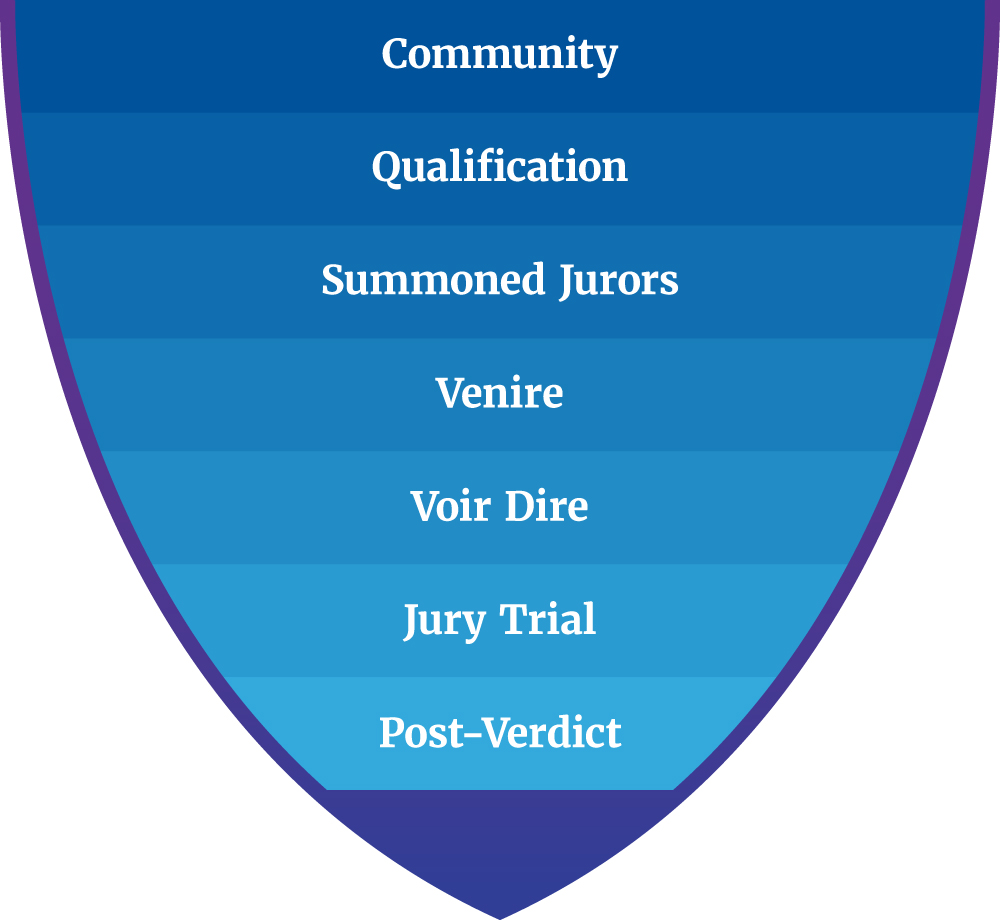Page Hero

Jury Center
The Jury Center is a comprehensive resource for understanding every stage of the jury process in criminal cases. Whether you are looking for information about the constitutional foundations that shape our jury system to the practical realities of deliberations and verdicts, you can find it here. The Jury Center brings together statutes, case law, training guides, and scholarly resources to help you navigate the legal, procedural, and human factors that define jury trials in the United States.

Summary
This resource allows you to discover the laws, arguments, and advocacy tools needed to protect the jury’s constitutional role as a safeguard against government overreach and to address threats to its fairness and independence at every stage of the process.
Explore the jury process through seven key stages:
-
Community – Learn how juries are drawn from the communities they serve, the constitutional guarantee of a fair cross-section, and the importance of representative and impartial jury pools.
-
Qualification – Understand the eligibility requirements for jurors, how these rules affect diversity and fairness, and the policy debates surrounding juror compensation and access to service.
-
Summoned Jurors – See what happens once jurors are summoned, including managing hardships, addressing potential biases, and navigating issues related to grand jury proceedings and subpoenas.
-
Venire – Examine how jury pools are assembled, legal standards for representativeness, and strategies for challenging systemic exclusion before selection begins.
-
Voir Dire – Learn model practices for effective jury selection, uncovering implicit and explicit bias, handling challenges for cause, and protecting the right to an impartial jury.
-
Jury Trial – Review best practices for maintaining juror impartiality during trial, addressing improper influences, and identifying errors in jury instructions.
-
Post-Verdict – Explore the rules and challenges of jury deliberations, the impact of specific jury instructions, holdout jurors, unanimity requirements, and jury sentencing where applicable.
Quick Navigation
Navigate by Topic:
-
Training & Webinars
-
Motions & Templates
-
State Law & Data
-
Policy Reform
-
Research & Reports












